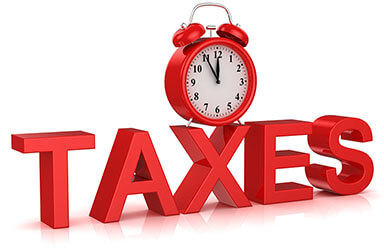Congress has once again extended a package of expired, or expiring, individual, business, and energy provisions known as “extenders” through the recently enacted “Tax Increase Prevention Act of 2014.” President Obama signed the bill into law this past Friday. The extenders consist of more than 50 individual and business tax deductions, tax credits, and other tax-saving laws which have been around for years, but are temporary because they have a specific end date. Congress has repeatedly extended the tax breaks for short periods of time, such as one or two years. The new legislation generally extends the tax breaks retroactively, most of which expired at the end of 2013, for one year through 2014.
Key extenders include increased Section 179 limits and 50% bonus depreciation as well as shorter depreciable lives for racehorses and real property improvements. For your quick reference, we have listed below key extenders in more detail as well as additional tax extenders for individuals and businesses.
Key Extenders
- 50% bonus depreciation (extended before Jan. 1, 2016 for certain longer-lived and
transportation assets); - The increase in Section 179 expensing (up to $500,000 write-off of capital expenditures subject to a gradual reduction once capital expenditures exceed $2,000,000) and an expanded definition of property eligible for expensing;
- The research credit;
- Three-year depreciation for racehorses;
- 15-year straight line cost recovery for qualified leasehold improvements, qualified restaurant buildings and improvements, and qualified retail improvements;
- The credit for nonbusiness energy property;
- The $250 above-the-line deduction for teachers and other school professionals for books, supplies, etc.; and
- The above-the-line deduction for qualified tuition and related expenses.
Individual Extenders
- The exclusion of up to $2 million ($1 million if married filing separately) of discharged principal residence indebtedness from gross income;
- Parity for the exclusions for employer-provided mass transit and parking benefits;
- The deduction for mortgage insurance premiums deductible as qualified residence interest;
- The option to take an itemized deduction for state and local general sales taxes instead of the itemized deduction permitted for state and local income taxes;
- The increased contribution limits and carryforward period for contributions of appreciated real property (including partial interests in real property) for conservation purposes;
- The provision that permits tax-free distributions to charity from an individual retirement account (IRA) of up to $100,000 per taxpayer per tax year, by taxpayers age 70 and ½ or older.
Business Extenders
- The new markets tax credit;
- The basis adjustment to stock of S corporations making charitable contributions of property;
- The reduction in S corporation recognition period for built-in gains tax;
- The temporary minimum low-income housing tax credit rate for non-federally subsidized new buildings;
- The military housing allowance exclusion for determining whether a tenant in certain counties is low-income under the Housing Assistance Tax Act of 2008;
- The Indian employment tax credit;
- The railroad track maintenance credit;
- The mine rescue team training credit;
- The employer wage credit for activated military reservists;
- The work opportunity tax credit;
- Qualified zone academy bond program;
- 7-year recovery period for motorsports entertainment complexes;
- Accelerated depreciation for business property on an Indian reservation;
- The election to accelerate alternative minimum tax (AMT) credits in lieu of additional first year depreciation;
- The enhanced charitable deduction for contributions of food inventory;
- The election to expense mine safety equipment;
- Special expensing rules for certain film and television productions;
- The deduction allowable with respect to income attributable to domestic production activities in Puerto Rico;
- The exclusion from a tax-exempt organization’s unrelated business taxable income (UBTI) of interest, rent, royalties, and annuities paid to it from a controlled entity;
- The special treatment of certain dividends of regulated investment companies (RICs);
- The definition of RICs as qualified investment entities under the Foreign Investment in Real Property Tax Act;
- Exceptions under subpart F for active financing income;
- Look-through treatment for payments between related controlled foreign corporations (CFCs) under the foreign personal holding company rules;
- The exclusion of 100% of gain on certain small business stock;
- The empowerment zone tax incentives;
- The American Samoa economic development credit; and
- Two provisions dealing with multi-employer defined benefit pension plans (dealing with an automatic extension of amortization periods and shortfall funding method and endangered and critical rules), are extended through 2015.
Energy-Related Extenders
The following energy provisions are retroactively extended through 2014:
- The second generation biofuel producer credit (formerly cellulosic biofuels producer tax credit);
- The incentives for biodiesel and renewable diesel;
- The Indian country coal production tax credit;
- The renewable electricity production credit, and the election to claim the energy credit in lieu of the renewable electricity production credit;
- The credit for construction of energy efficient new homes;
- Second generation biofuels bonus depreciation;
- The energy efficient commercial buildings deduction;
- The special rule for sale or disposition to implement federal energy regulatory commission (FERC) or State electric restructuring policy for qualified electric utilities;
- The incentives for alternative fuel and alternative fuel mixtures; and
- The alternative fuel vehicle refueling property credit.
These provisions are extended through December 31, 2014, which leaves a scant week and a half before they expire once again. We are hopeful that the upcoming year results in a more timely passage of tax legislation which will allow taxpayers adequate time to respond to the tax incentives.
If you would like more details about these changes or any other aspect of the new law, please do not hesitate to call your Dean Dorton advisor or Megan Kishman at (502) 566-1070 or by email at mkishman@deandorton.com and Allison Carter at (859) 425-7645 or by email at alcarter@deandorton.com.








